Registered Traveler Program
TIME – Fast-Tracking Flyers
As the number of airline passengers starts to soar with the temperature, the Transportation Security Administration (TSA) is finally taking a significant step toward speeding the security process for at least some flyers. Aviation sources tell Time that this week the TSA will announce the launch of a three-month trial of its Registered Traveler program, which will start at five airports, beginning in Minneapolis—St. Paul and then in other cities, including Los Angeles and Houston. A sort of fast track for frequent flyers, the program aims to let approved passengers use less crowded lanes to the security checkpoints and possibly avoid such routine security measures as removing their shoes and coats. To gain that privilege, passengers must submit to an extensive background check, including searches of commercial and government databases. After being approved and paying a small annual fee (yet to be determined), they would be issued a card—containing a biometric identifier (a fingerprint, for example) and personal data—that shows they’re entitled to the special security treatment.
The initiative comes not a moment too soon. Almost 200 million people are expected to fly this summer, a 12% increase from last year, yet the cash-strapped TSA has had to lay off thousands of screeners. Up to 15% of passengers are still being singled out for extra screening because of outdated parameters like buying a one-way ticket or paying in cash. The TSA has fumbled efforts to improve the screening procedures and carry out a new color-coded system that verifies the identity and assesses the risk of every passenger.
Critics of the pilot program doubt it will make the security process much easier for prescreened travelers. But airport officials are supportive. “We love the idea,” says Tim Anderson, an executive director of the Minneapolis—St. Paul International Airport. “It helps move us away from treating everyone the same and searching for the needle in the haystack.”
This concept makes sense in theory, although it does appear to create a privileged position for wealthy travelers, which is problematic now that the screening is handled by the federal government. Still, it makes no sense for frequent fliers to have to endure dozens of security checks a week once it’s clear that they are no danger to the public.
Ultimately, my preference would be a faster, less cumbersome system for screening all passengers and bags. Surely, a technological solution can be devised that would unobtrusively screen passengers as they lined up to board the plane.
Regardless of the method, though, it is important not to remove the human element. Biometric security cards or a gee whiz scanner are useful aids, but they can be thwarted by clever terrorists. There is no substitute for well trained human observers who can look for suspicious behavior. Unfortunately, under the current system, they’re too busy doing pro forma checks on little old ladies’ shoes–to give the appearance of “fairness” to the system–to do their jobs effectively.

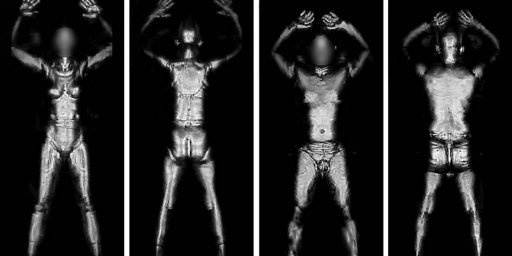
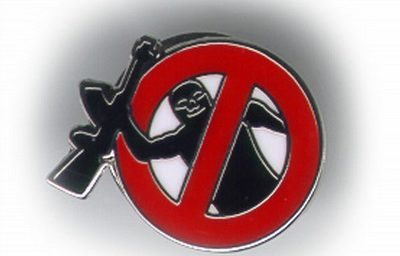
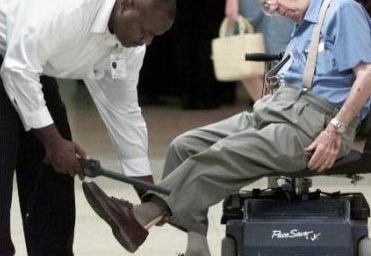
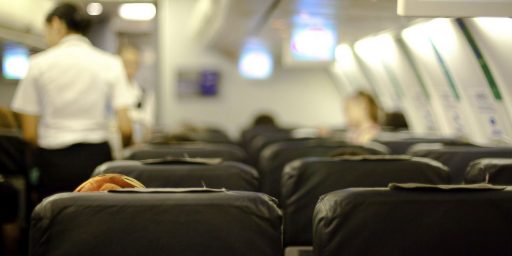
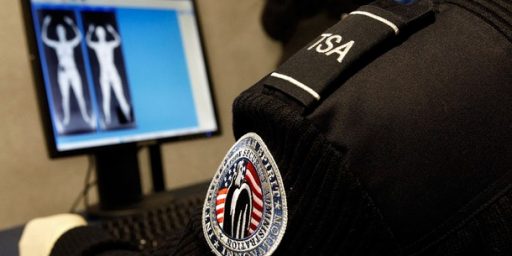
This is great. I thought of this idea 10 years ago and I am glad someone else has this vision. The benefits of this program are obvious and too numerous to mention. I am sure that many people are willing to trade their privacy rights for safety and convenience. There will always be critics for any program and they never offer alternative solutions.
The concept here is simple. You are trying to identify the one person in possibly one million who is a potential threat. By eliminating registered persons from the search, the job becomes mathematically simpler.
—